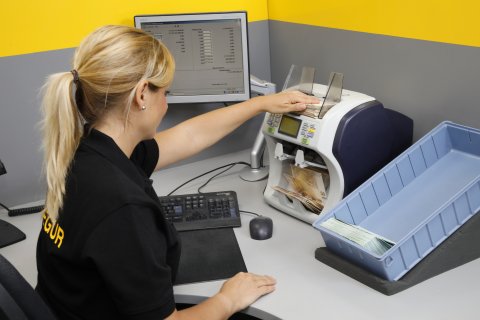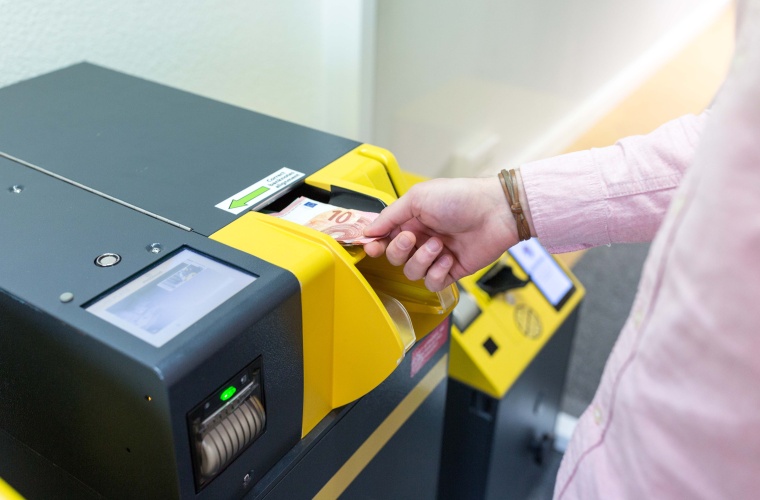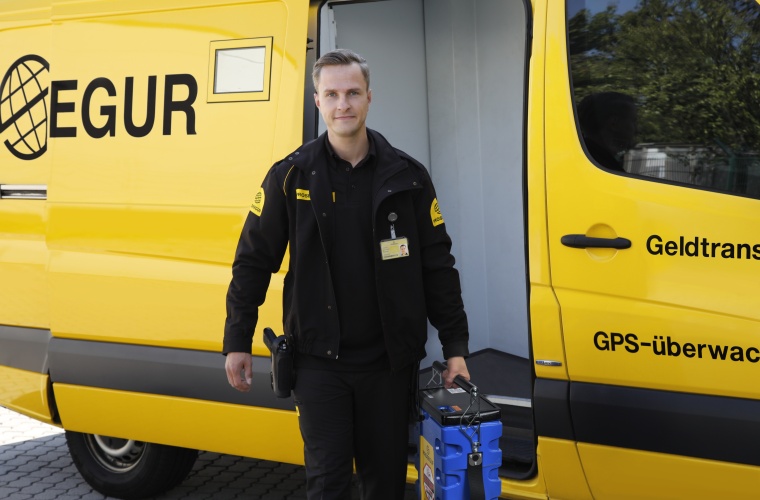Prosegur‘s Commitment to Cash Management and Security
Remember the recent power outage in Spain and Portugal? Digital payments were suddenly disrupted, affecting ATMs and POS terminals, and forcing many
businesses to switch to cash-only transactions. This led to a surge in
demand for cash, but ATMs quickly ran out and couldn’t be replenished.
Online banking and mobile payment apps were also inaccessible, preventing
digital transfers. GIT SECURITY spoke with Michael Leppler,
Head of Sales & Marketing at Prosegur Cash Services Germany, to learn
about the social importance of safeguarding a multitude of payment
options and Prosegur’s global role in securing valuable assets.

GIT SECURITY: Mr. Leppler, as Head of Sales & Marketing at Prosegur Germany, you carry extensive responsibilities. Could you briefly explain your professional background and current role at Prosegur?
Michael Leppler: As a logistics professional, I have been in a leadership role at Prosegur for 16 years. During this time, I have overseen the company‘s market entry in Germany in 2011, the integration of additional cash and valuables service providers, and the associated market consolidation.
Prosegur is globally known as one of the leading security service providers. What services does Prosegur offer worldwide, and how do you serve the German market?
Michael Leppler: Prosegur operates in 36 countries across five continents with six different business areas. The Prosegur Security division, for example, offers solutions related to security technology and guarding. Colleagues from the Cipher division provide cybersecurity services, to name just a few examples. In Germany, Prosegur is active in the Cash division. We offer solutions for all areas where cash and other physical or digital assets are in circulation. This includes collecting cash revenues from our retail customers, crediting them to the bank account, and supplying fresh change. For bank customers, we fill ATMs and ensure that self-service devices function smoothly. With a 55% market share, we are the market leader in Germany and operate a nationwide network of locations as the only provider. We cover the entire country with our own resources, without the use of subcontractors. In this respect, Prosegur is significantly responsible for ensuring the German population‘s access to cash and the liquidity of businesses. We take this responsibility very seriously.

The core business of Prosegur Germany consists of CIT (Cash In Transit) and comprehensive management of the associated processes. Physical cash transport is a central part of this and involves certain risks. What role does security play, and what measures and products do you use to ensure a secure process chain?
Michael Leppler: Where cash is transported, risk is involved. Therefore, no company with cash flow should send its employees to the bank themselves. This is mandated by the legal duty of care that every employer has for their employees. Companies specializing in cash transport, like Prosegur, minimize risks and increase security for everyone through a mix of measures and standardized processes. The industry has set strict rules for itself with the security regulations of the Federal Association of German Cash and Valuables Services and DIN 77210. These start with recruiting: All employees in cash transport must have a clean record and be trained in the security industry according to § 34a GewO. Cash transport always takes place with at least two armed employees in an armored and GPS-monitored cash transporter. Transport security devices are used for the footpath between the vehicle and the customer company. Security precautions do not end with transport. Even in the cash centers, where the collected or to be delivered cash is managed and processed, strict measures must be followed. These range from structural requirements of the building to seamless video surveillance.
German economy has undergone significant changes in the past five years, especially due to the pandemic and increased investment in digital technologies. What challenges have you experienced during this time, and what product optimizations have resulted from them?
Michael Leppler: Like the entire society, Prosegur was in exceptional circumstances during the pandemic. Although we were not affected by official closure orders as part of critical infrastructure, many of our customers were. The associated drop in orders was unprecedented. Additionally, the cash transport process is closely coordinated between us and our partners. If cash collection cannot take place, as seen during the pandemic, liquidity bottlenecks threaten the client because cash is not converted into book money. Many companies realized during the pandemic that they need to make their business models and processes more resilient. Digitalization is an important factor here. Even a tangible tool like cash can be digitized. Not only since the pandemic, we have been offering our customers intelligent deposit devices for their cash under the name Cash Today. In addition to numerous advantages for internal cash handling, such as eliminating manual counting, a smart safe offers more resilience compared to a conventional safe: Cash revenues are not only well protected against theft and robbery but can also be credited to the bank account early through their digital connection, even if the cash has not yet been collected.


The digital transformation of business models is currently a top priority for all companies. Last year, the Deutsche Bundesbank published a study on the future of cash, fitting into this discourse. What significance does the use of cash have in our society with a view to the future?
Michael Leppler: Cash is and will remain an important component in the mix of payment methods, I am convinced of that. Every payment method has its justification, whether for the individual person or just for the individual situation. At Prosegur, we are committed to ensuring that the freedom of choice between payment methods is preserved, as it is an expression of the personal freedom of every citizen. Therefore, as a company, we work tirelessly to make the product cash, which is not the core business for our customers, as attractive as possible. As a society, we must ensure that an efficient cash infrastructure is maintained. As consumers, we influence this by not accepting it if we are refused to pay with cash. Because cash is the only legal tender.
Banks tend to strive for a cashless economy. In which areas does coin money still play an important role?
Michael Leppler: Indeed, for credit institutions, cash, especially coin money, is no longer the focus. This environment includes initiatives such as the abolition of one- and two-cent coins by the National Cash Forum founded by the Bundesbank. For cash payments, the amount is to be rounded up or down to the next five-cent amount, as is already practiced in the Netherlands or Finland. This can be discussed. The fact is: large quantities of coins are still in circulation, which are needed especially as change. Prosegur alone delivers roughly 5.3 billion coins annually to its customers in Germany. This corresponds to a weight of 25,000 tons. Prosegur can cushion the withdrawal of banks from the coin money issue.
With which projects is Prosegur shaping the transaction world of the future?
Michael Leppler: One focus is on the previously described intelligent and digitally connected devices Cash Today. These are available in two variants: as a smart safe for securely storing cash revenues and as a cash payment machine at the point of sale. At such a device, customers can pay with cash themselves without the cash personnel coming into contact with it. We particularly want to expand this variant and add cashless payment methods. Our goal is to represent a 360° payment solution. In addition, Prosegur is already working on a crypto business area that will provide a comprehensive solution for the storage and management of digital assets. Furthermore, artificial intelligence will play an increasingly important role in our business processes. As a market leader, we aim to actively shape the market.
Business Partner
Prosegur Cash Services Germany GmbHHomberger Straße 25
40882 Ratingen
Germany
most read

GIT SECURITY AWARD 2026 - The winners have been announced!
GIT SECURITY AWARD 2026: The best safety and security solutions of the year - now an overview of all winners

Safety and Security in an Emergency: How companies take responsibility with strategic personal protection and amok prevention
Personal protection & amok prevention: strategic concepts, training & responsibility for corporate safety and security


When the Internet stumbles: Why DNS is important
When DNS fails, the internet stumbles-AWS outage proves resilience and redundancy are vital for digital trust

Is Your Venue Ready for Martyn’s Law?
Martyn’s Law demands stronger security by 2027. Is your venue prepared to protect and respond?





